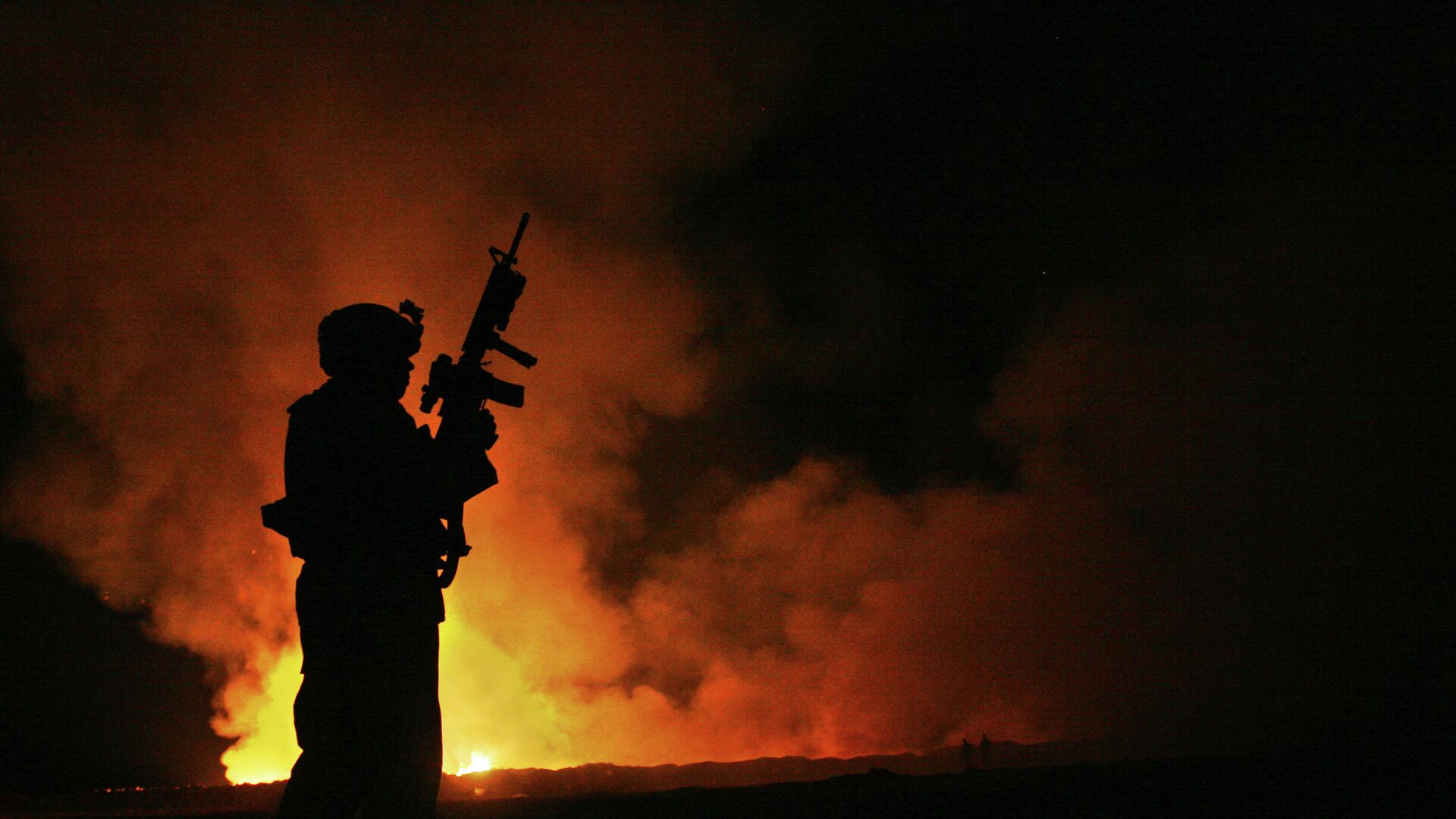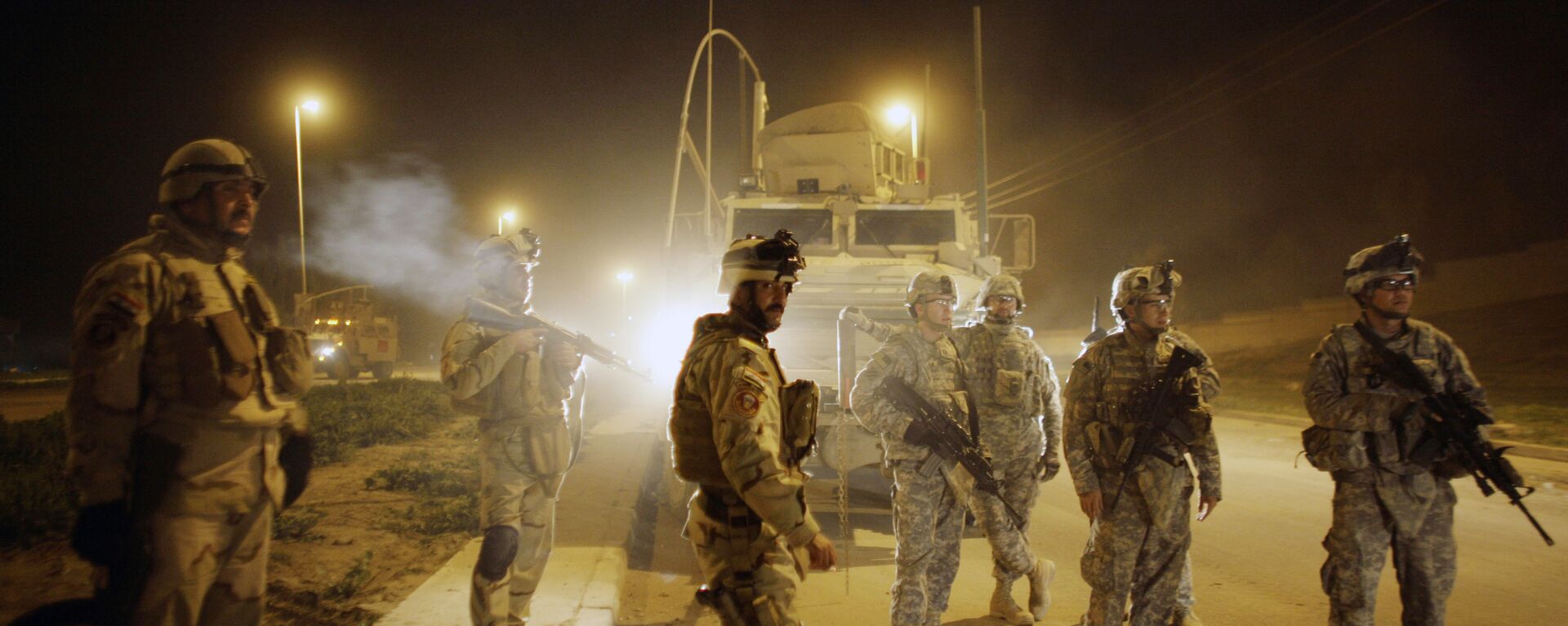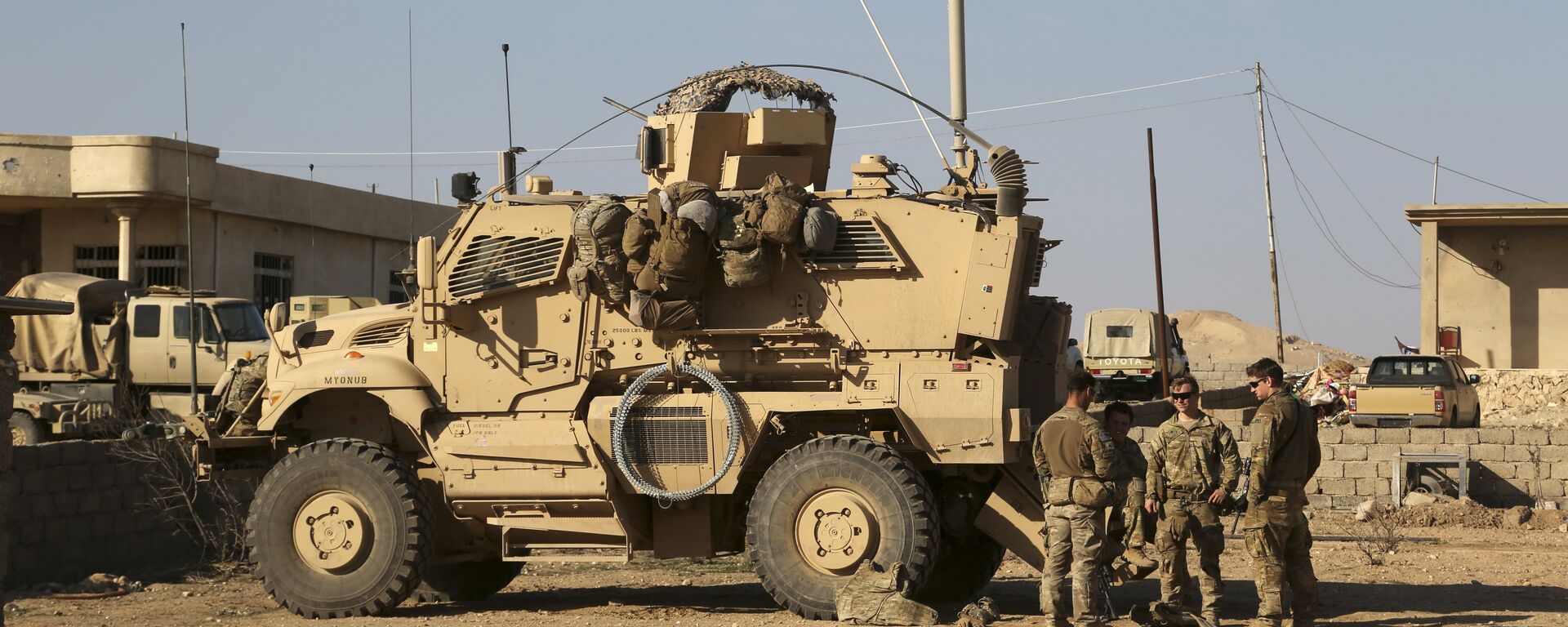Anti-War Activist: US 'Doubled' Aggression After Iraq But World is Learning to Stand Up
21:24 GMT 20.03.2023 (Updated: 21:25 GMT 20.03.2023)

© USMC/Cpl. Samuel Corum
Subscribe
WASHINGTON (Sputnik) - The United States has not only learned nothing from the consequences of the Iraq invasion, it has doubled its aggression against other countries through sanctions and proxy armies, although the world is finally learning to take a stand, United National Antiwar Coalition (UNAC) coordinator Joe Lombardo told Sputnik.
On March 19, 2003, at 10:16 p.m. EST, President George W. Bush in a televised address from the Oval Office said the US and coalition forces were in the early stages of military operations to disarm Iraq and "free its people," marking the start of an invasion and occupation that led to the deaths of hundreds of thousands of civilians and combatants.
Washington’s official reasons for the invasion, initially, were alleged links between Saddam Hussein and international terrorism, as well as CIA claims of stockpiles of weapons of mass destruction in Iraq, allegations that turned out to be false. As a result of the invasion, Saddam was overthrown and executed, which was followed by years of war.
"The US has not changed and has doubled its aggression," Lombardo said. "Although the US government seems to have learned little from Iraq, the people of the US have learned that they don’t want to see more wars like Iraq and Vietnam. This has helped stay the hand of the US, which has had to depend more on sanctions and proxy armies to fight their battles."
'Watched in Horror'
Dozens of countries took part in the Operation Iraqi Freedom at different times, including the United Kingdom, Italy, Poland and Australia. Within three weeks of the invasion Iraqi civilians and US troops pulled down a statue of Saddam Hussein in Baghdad.
Although Bush declared "mission accomplished" in May of 2003, the US remained embroiled in fierce fighting that would leave over 4,400 American troops dead before combat operations ended in 2011.
Lombardo shared he has been an anti-war activist for many years, and during the US war against Vietnam, he worked with the anti-war coalitions of the day against that war. "And when the US invaded Iraq, I once again started organizing," he said.
Lombardo recalled that right before the United States invaded Iraq, millions of people took to the streets, all over the world, to protest, and he participated in the New York City demonstration of a half million people.
"Other actions took place all across the US and on every continent in the world, including Antarctica," he noted. "Millions took to the streets in London, Paris, Rome, Tokyo, and many other countries."
But the US, he added, which had gained sole hegemony and was at the time the only superpower in the world, felt it could ignore these protests and launched its invasion on Iraq.
"We watched and protested in horror as many of the things that are common place today, started happening in Iraq," he went on to say. “We saw 'black sites' and torture centers like Abu Ghraib in Iraq. The US invaded Iraq with 'Shock and Awe' and hundreds of thousands were killed."
Press coverage was limited and Western reporters were asked to ‘embed’ with the US military, Lombardo said.
"Those who refused found that their hotels were fired on, they were belittled in the US media and some died for their efforts," he said.
Standing Strong
After the war, Lombardo pointed out, the US tried to push around other countries through sanctions and proxy armies in places like Syria, Libya, Yemen, and against Russia in Ukraine. However, Lombardo said while the US must stop interfering in the internal affairs of other countries, the world also needs to take a stand – and there are signs this is happening.
"The world must learn that it can stand up to the US bullying and countries that are sanctioned or attacked by the US must stand together and build alternatives to the US economic, political, and military hegemony," Lombardo said.
However, he added, today there are appearing alternatives to the US domination.
"People are looking more towards the East and options like China’s Belt and Road initiative and even BRICS as an alternative to the IMF and the World Bank are now becoming available," he said.
The US is losing its hegemonic hold over the world economic structures and new strategic and economic alliances are being forged without the US, he observed.
"This will give the countries of the world a means to challenge US economic and military control of their countries and the real possibility for them begin to develop," Lombardo said.



